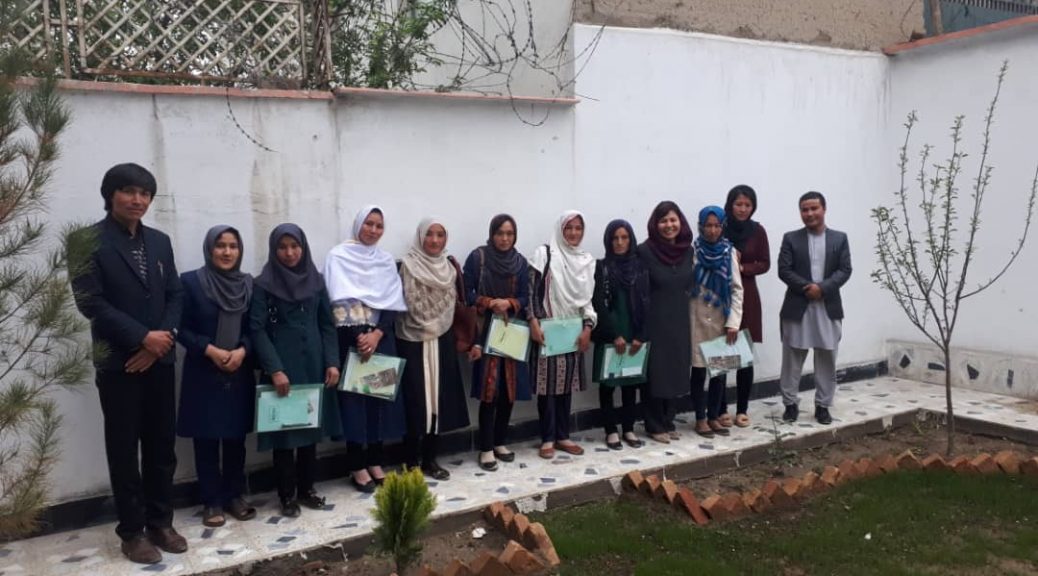The Nai Qala Association recently organized a workshop to improve the capacity of the preschool teachers working in the villages of the region of Nai Qala.
The Nai Qala Association organized in the premises of the organization in Kabul, earlier in April, a workshop to improve the capacity of the preschool teachers working in the villages of the region of Nai Qala. Eight teachers participated in the training and deepened their knowledge about the objectives of preschool, the importance of active learning, children’s rights, sustainability, efficient teaching methodologies, play groups in the community, the role and importance of communication. All topics were actively discussed and illustrated by the daily experiences of the teachers.
Preschool is a new concept in Afghanistan
In Afghanistan, people generally do not know what preschool is and are not aware of its importance for children’s development from an educational, emotional and behavioral point of view. Teachers highlighted how early childhood education, at preschool level, is laying the foundations for later formal education but also for children as future citizens. The importance of playing was heavily discussed and recognized as a means to instill behavior changes. Playtime in preschool gives opportunities to children to collaborate, to accomplish things they are proud of, to learn patience and to share. Teachers were impressed by the potential of play to foster changes.
The participants showed great interest in the topic of children’s rights. “Children have rights”, “Children must be respected as any other human being” were recurrent sentences among the participants. The teachers discovered how to improve their own behavior with preschool children.
Teachers showed great enthusiasm for their daily work and huge motivation for their educational work and shared many anecdotes. Everyone was very happy to participate in this workshop. They learnt a lot about children’s development and about preschool in general but would like to grow their knowledge and receive more in-service training in the future.
The feed-back of a participant
Qasem, the most recent recruit of the organization, also attended the training, both as a participant and a trainer. He shares his feelings about the workshop:
“The preschool workshop was one of the most useful experiences that I ever had. Although the workshop was designed to improve the skills of preschool teachers, I also learned a lot in this workshop. Because preschool is still in its early stages in Afghanistan, I have never had the opportunity to get such in-depth knowledge about preschool and its role in children’s development. The workshop gave me the opportunity to learn more about preschool, its values and importance for developing children abilities in their later stages of life.
This workshop was very pleasant and enjoyable for many reasons. On the one hand, I was involved in organizing and planning the workshop as much as I could. On the other hand, this was my first educational and formal workshop where I had the opportunity to present a topic. This experience gave me confidence that I have the capacity to speak to a large audience. In addition, this workshop has created self-confidence and motivation for me, that I am now determined to talk in large seminars and workshops on behalf Nai-qala.
At this workshop, I found that preschool teachers were talking with a lot of interest and motivation about children and preschool classes… and this really impressed me. I learned a lot from this workshop about children’s education, the content and philosophy of preschool, daily routines and I listened with great interest to the stories teachers shared about their classes and their daily experiences with children. Furthermore, this workshop was very motivational for me and I discovered how the Nai Qala Association staff and teachers are committed and tirelessly working to promote children’s education in rural areas, and now I feel committed more than ever to work harder for those deprived communities.”

